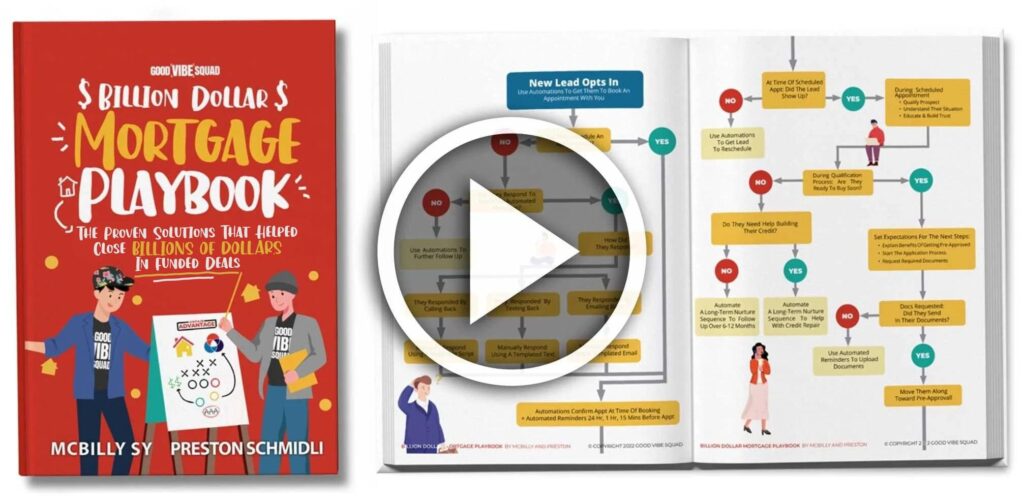When it comes to mortgage marketing, compliance is key. As a mortgage lender, you must ensure that your marketing practices are in line with federal and state regulations. Failure to comply can lead to serious consequences, including fines, legal action, and damage to your reputation. To avoid these risks, it’s important to have a solid understanding of mortgage marketing compliance and the steps you need to take to ensure that your marketing efforts are compliant.
Regulatory bodies such as the Consumer Financial Protection Bureau (CFPB) and the Federal Trade Commission (FTC) play a key role in ensuring that mortgage lenders comply with marketing regulations. These bodies are responsible for enforcing regulations such as the Real Estate Settlement Procedures Act (RESPA) and the Truth in Lending Act (TILA), which govern how mortgage lenders can market their services. By understanding the role of these regulatory bodies, you can ensure that your marketing practices are in line with their requirements.
To ensure that your mortgage marketing practices are compliant, it’s important to have a comprehensive marketing compliance checklist. This checklist should cover all key compliance requirements, including regulations related to advertising, disclosures, and consumer protection. By following this checklist, you can ensure that your marketing practices are compliant and avoid the consequences of non-compliance.
Key Takeaways
- Compliance is crucial when it comes to mortgage marketing, and failure to comply can lead to serious consequences.
- Regulatory bodies like the CFPB and FTC play a key role in ensuring that mortgage lenders comply with marketing regulations.
- To ensure compliance, it’s important to have a comprehensive marketing compliance checklist that covers all key requirements.
Get Our Billion Dollar Mortgage Playbook
Get the proven strategies that helped close Billions of dollars in funded deals!
Understanding Mortgage Marketing Compliance
As a mortgage lender, it is crucial to understand and comply with the regulations set by the Consumer Financial Protection Bureau (CFPB) and other regulatory bodies to avoid penalties and legal issues. Mortgage marketing compliance refers to the set of rules and guidelines that lenders must follow when advertising their services and products to consumers.
The CFPB has strict regulations on advertising and marketing in the mortgage industry to protect consumers from misleading or false information. As a result, lenders must ensure that their marketing materials, including websites, social media, and print ads, comply with these regulations.
Some of the key regulations that mortgage lenders must follow include:
- Truth in Lending Act (TILA): This act requires lenders to disclose the true cost of credit, including interest rates and fees, to consumers in a clear and understandable manner.
- Real Estate Settlement Procedures Act (RESPA): RESPA prohibits lenders from giving or receiving any kickbacks or referral fees for mortgage business.
- Unfair, Deceptive, or Abusive Acts or Practices (UDAAP): This regulation prohibits lenders from engaging in any unfair, deceptive, or abusive practices that harm consumers.
To ensure compliance with these regulations, mortgage lenders should create a comprehensive mortgage marketing compliance checklist that covers all aspects of their marketing materials. The checklist should include the following:
- Review of all marketing materials: Lenders should review all their marketing materials, including websites, social media, print ads, and email campaigns, to ensure that they comply with the regulations.
- Disclosure requirements: Lenders must ensure that all required disclosures, such as APR, fees, and loan terms, are clearly and prominently displayed in all marketing materials.
- Record-keeping: Lenders must keep records of all marketing materials, including drafts and final versions, to show compliance with the regulations.
- Training: Lenders should train their marketing and compliance teams on the regulations and how to comply with them.
By following a comprehensive mortgage marketing compliance checklist, lenders can ensure that their marketing materials comply with the regulations and avoid costly penalties and legal issues.
Regulatory Bodies and Their Role
When it comes to mortgage marketing compliance, there are several regulatory bodies that play a crucial role in ensuring that lenders and marketers follow the rules and regulations set forth by the government. In this section, we will discuss two of the most important regulatory bodies: the Consumer Financial Protection Bureau (CFPB) and the Federal Trade Commission (FTC).
Consumer Protection Financial Bureau
The CFPB was created in 2010 as part of the Dodd-Frank Wall Street Reform and Consumer Protection Act when President Obama signed these into law. Its mission is to protect consumers from unfair, deceptive, or abusive practices in the financial industry to promote a fair, transparent, and competitive market. The CFPB has the authority to enforce federal consumer financial laws and to regulate financial institutions, including mortgage lenders.
One of the CFPB’s main responsibilities is to ensure that mortgage lenders and servicers are complying with the Truth in Lending Act (TILA) and the Real Estate Settlement Procedures Act (RESPA). These laws require lenders to provide borrowers with clear and accurate information about the terms of their loans, including interest rates, fees, and other costs.
As a mortgage marketer, it is important to understand the CFPB’s rules and regulations, as well as its enforcement actions. Failure to comply with the CFPB’s rules can result in significant fines and penalties.
Federal Trade Commission
The FTC is an independent agency of the federal government that is responsible for protecting consumers from unfair or deceptive practices in the marketplace. The FTC has the authority to enforce federal laws related to consumer protection, including laws related to advertising and marketing.
In the context of mortgage marketing compliance, the FTC is responsible for enforcing the Mortgage Acts and Practices Advertising Rule (MAP Rule). The MAP Rule prohibits mortgage lenders and marketers from making false or misleading statements in their advertising, including statements about interest rates, fees, and other terms of the loan.
As a mortgage marketer, it is important to understand the FTC’s rules and regulations, as well as its enforcement actions. Failure to comply with the FTC’s rules can result in significant fines and penalties.
Key Compliance Requirements
When it comes to mortgage marketing compliance, there are a few key requirements that you must be aware of. These requirements are in place to ensure that lenders are providing accurate and truthful information to potential borrowers. In this section, we will discuss the three most important compliance requirements that you need to know.
Truth in Lending Act
The Truth in Lending Act (TILA) is a federal law that requires lenders to disclose the terms and conditions of a loan to the borrower. This includes the interest rate, any fees associated with the loan, and the total cost of the loan over its lifetime. TILA also requires lenders to provide borrowers with a three-day right of rescission, which means that the borrower has three days to cancel the loan without penalty.
To comply with TILA, lenders must provide borrowers with a Loan Estimate within three business days of receiving a loan application. The Loan Estimate must include the loan terms, projected payments, and estimated closing costs. Lenders must also provide borrowers with a Closing Disclosure at least three business days before the closing date. The Closing Disclosure must include the final loan terms, the total closing costs, and the amount of cash required to close.
Real Estate Settlement Procedures Act
The Real Estate Settlement Procedures Act (RESPA) is a federal law that requires lenders to provide borrowers with certain disclosures related to the settlement process. This includes a Good Faith Estimate, which outlines the estimated closing costs associated with the loan, and a HUD-1 Settlement Statement, which details the actual closing costs.
RESPA also prohibits certain practices, such as kickbacks and referral fees, and requires lenders to use a specific escrow account when collecting funds for taxes and insurance. To comply with RESPA, lenders must provide borrowers with a Loan Estimate within three business days of receiving a loan application, as well as a Closing Disclosure at least three business days before the closing date.
Fair Lending Laws
Fair lending laws are in place to ensure that all borrowers are treated fairly and without discrimination. These laws prohibit lenders from discriminating against borrowers based on their race, ethnicity, gender, religion, or other protected characteristics. Fair lending laws also require lenders to provide borrowers with equal access to credit and to evaluate all loan applications based on the borrower’s creditworthiness.
To comply with fair lending laws, lenders must ensure that their marketing materials do not contain any discriminatory language or images. Lenders must also ensure that their underwriting policies and procedures do not result in discrimination against certain groups of borrowers. Finally, lenders must ensure that they are providing equal access to credit to all borrowers, regardless of their background.
Overall, compliance with these key requirements is essential for lenders to avoid penalties and lawsuits. By following these requirements, lenders can ensure that they are providing accurate and truthful information to potential borrowers, treating all borrowers fairly, and maintaining a positive reputation in the industry.
Your Marketing Compliance Checklist
When it comes to mortgage marketing, compliance is crucial. Not only does it help you avoid hefty fines and legal trouble, but it also builds trust with your clients. To ensure that your marketing efforts comply with the relevant regulations, you should follow a checklist that covers the key areas of concern. Here are the three main sub-sections of a mortgage marketing compliance checklist:
Advertising and Promotional Materials
Your advertising and promotional materials should be truthful, not misleading, and compliant with all applicable laws and regulations. This includes avoiding unfair, deceptive, or abusive acts or practices (UDAAPs). To ensure compliance, you should:
- Review all advertising and promotional materials before they are published or distributed. This includes print, online, and social media ads, as well as flyers, brochures, and other marketing collateral.
- Use clear and conspicuous disclosures to ensure that clients are fully informed about the terms and conditions of your products and services.
- Avoid making false or misleading claims about your products, services, or rates.
- Ensure that your advertising and promotional materials do not discriminate against any protected class of individuals.
Loan Originator Compensation Rules
The loan originator compensation rules aim to prevent mortgage lenders and brokers from steering borrowers into higher-cost loans to receive higher compensation. To comply with these rules, you should:
- Establish and maintain a written policy that ensures that loan originators are not paid based on the terms of the loan.
- Ensure that loan originators are not paid more for originating loans with higher interest rates, points, or fees.
- Avoid dual compensation arrangements, where loan originators receive compensation from both the borrower and the lender.
Privacy and Data Security
Privacy and data security are critical issues in mortgage marketing. To protect your clients’ personal and financial information, you should:
- Establish and maintain a written privacy policy that explains how you collect, use, and protect clients’ personal information.
- Implement appropriate physical, technical, and administrative safeguards to protect clients’ personal and financial information from unauthorized access, use, or disclosure.
- Train your employees on privacy and data security best practices and ensure that they understand their roles and responsibilities in protecting clients’ personal and financial information.
Non-Compliance Consequences
Non-compliance with mortgage marketing regulations can have serious consequences for your business. The following are some of the most common consequences of non-compliance:
Fines and Penalties: Regulatory agencies can impose fines and penalties for non-compliance with mortgage marketing regulations. These fines can range from a few hundred dollars to thousands of dollars per violation. In some cases, repeated violations can result in even higher fines and penalties.
Legal Liability: Non-compliance can also result in legal liability for your business. If a consumer is harmed as a result of a violation of mortgage marketing regulations, your business may be held legally liable for damages.
Reputational Damage: Non-compliance can also damage your business’s reputation. If consumers perceive your business as being non-compliant with regulations, they may be less likely to do business with you in the future. This can result in lost revenue and a damaged brand.
Loss of License: In some cases, non-compliance can result in the loss of your business license. This can prevent you from doing business in the future and can have a significant impact on your bottom line.
Best Practices for Compliance
When it comes to mortgage marketing compliance, there are a few best practices that you should follow to ensure that you are meeting all of the necessary regulations. Here are some key considerations to keep in mind:
Conduct Regular Audits
One of the most important things you can do to maintain compliance is to conduct regular audits of your marketing materials. This will help you identify any potential issues before they become a problem. You should review all of your marketing materials, including brochures, advertisements, and emails, to ensure that they are in compliance with all relevant laws and regulations.
Keep Accurate Records
Another important best practice is to keep accurate records of all of your marketing activities. This includes keeping copies of all of your marketing materials, as well as any communications with clients or prospects. By keeping detailed records, you can provide evidence of your compliance if you are ever audited.
Train Your Team
It’s important to ensure that all of your staff members understand the regulations that apply to mortgage marketing. This includes loan officers, marketing staff, and anyone else involved in the marketing process. You should provide regular training sessions to ensure that everyone is up-to-date on the latest rules and regulations.
Use Compliance Tools
There are a variety of compliance tools available that can help you maintain compliance with mortgage marketing regulations. These tools can help you automate compliance checks, monitor your marketing activities, and ensure that your marketing materials are in compliance with all relevant laws and regulations.
Work with a Compliance Expert
Finally, it can be helpful to work with a compliance expert who can provide guidance and advice on how to maintain compliance. A compliance expert can help you identify potential issues and provide solutions to ensure that your marketing activities are in compliance with all relevant laws and regulations.
By following these best practices, you can help ensure that your mortgage marketing activities are in compliance with all relevant laws and regulations.
Compliance is an Ongoing Process
Mortgage marketing compliance is a critical aspect of the mortgage industry that must be taken seriously to avoid penalties, fines, and legal actions. As a mortgage marketer, you need to ensure that your marketing materials are in compliance with federal and state regulations, including RESPA, TILA, and other relevant laws.
Remember that compliance is an ongoing process that requires constant attention and effort. By following the best practices outlined in this article and staying informed about the latest regulatory changes, you can ensure that your mortgage marketing efforts are compliant and effective.
Need a Compliant Lead Gen and Marketing Solution?
Good Vibe Squad takes compliance seriously. If you’re looking for a compliant lead-gen, marketing, CRM, and coaching solution to scale your mortgage business, look no further. See why we’re the #1 lender-preferred growth partner for loan officers all over the country.







